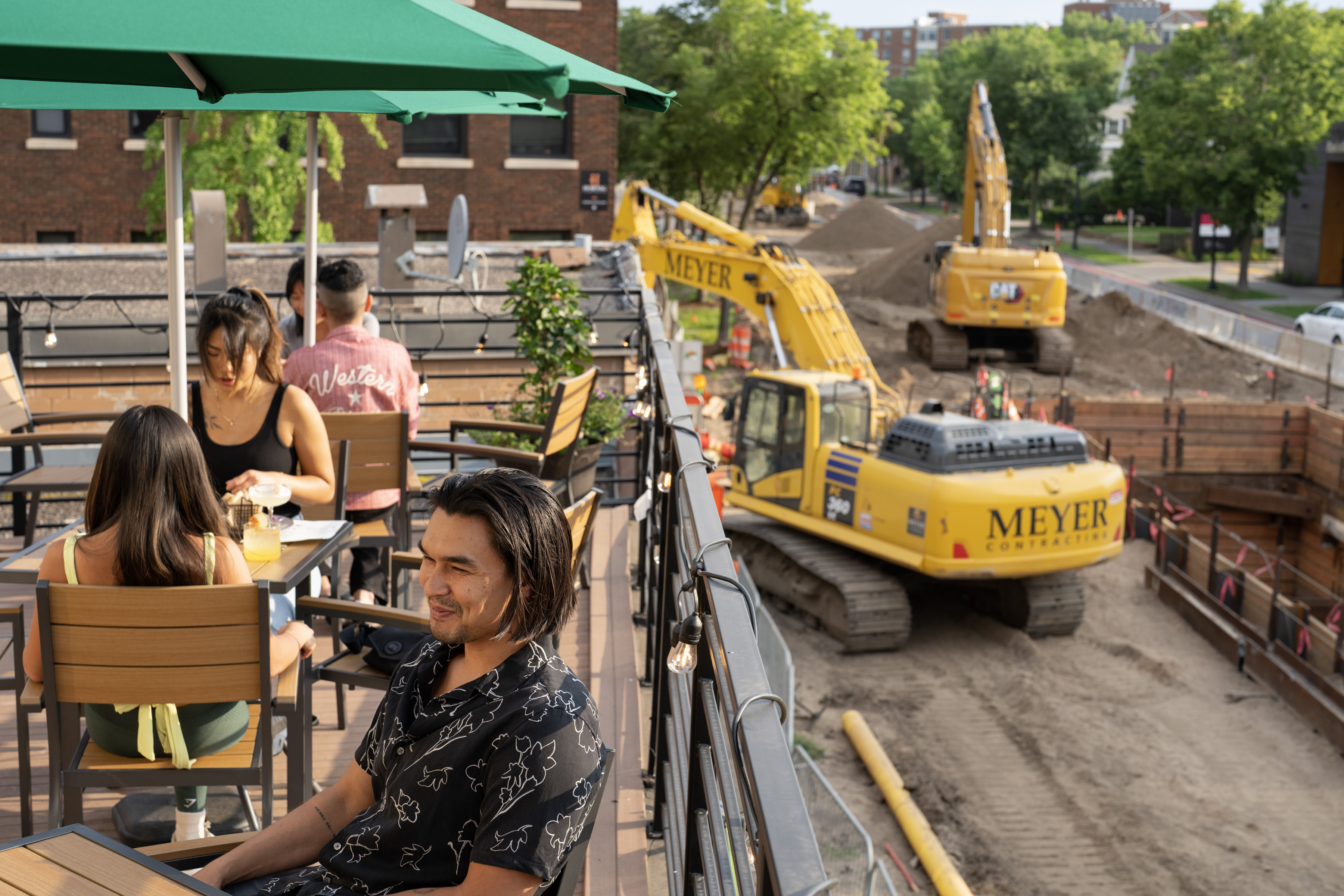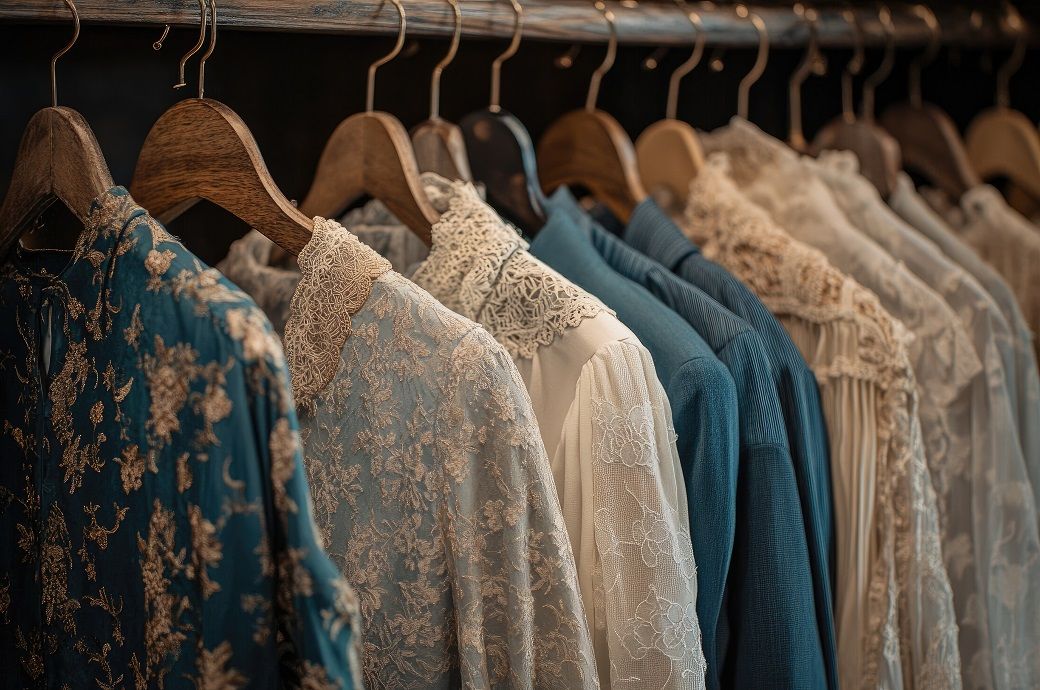Bussiness
Uptown is down for now. These business owners are holding out hope.

The heart of Uptown isn’t beating all that strong right now.
Four years after the riots following George Floyd’s murder and three years after another wave of arson and vandalism following the police killing of Winston Smith, the storefront windows and facades are repaired, but the spaces inside are often vacant. Meanwhile, a stretch of Hennepin Avenue S. is closed and sidewalks detoured as part of several major construction projects, creating a vacuum of vibrancy and an opening for new troubles. Earlier this month, a homeless man was charged with setting a series of dumpster fires in the neighboring Lyn-Lake neighborhood that forced residents and businesses out of their homes.
But don’t count Uptown out, supporters warn. Its history is replete with the push and pull of urban-vs.-suburban, trendy-vs.-authentic and new-vs.-old. In the 1980s, some derided the punk scene, yet it spawned an anti-racist skinhead movement. More recently, national retailers like H&M, Apple and Victoria’s Secret gave the commercial area upper-middle-class bona fides, while some bemoaned the “corporatization” of a once-distinct local experience.
(Alex Kormann/Star Tribune)
“The downside of that, always, is large corporations have no investment in Minneapolis,” says Minneapolis City Council Vice President Aisha Chughtai, who represents a portion of Uptown. “This is not their home. This is not their community, and when things get hard, their bottom line makes them leave. It’s the people who are local … that care about the community that can weather the toughest of storms, and I think that’s true for what we’re seeing in Uptown right now in who has chosen to stay.”
Magers & Quinn Booksellers, Frattalone’s (Ace) Hardware & Garden and the Uptown Theater are among the institutions still there. The list of those that are gone is much longer. New entries include cafes and retail, as well as operations with a different vibe, such as the future Rise Up Center, a job-training nonprofit in the former YWCA building, and Queermunity, a co-working space slated to open next to Magers & Quinn in the fall.
Chughtai acknowledges Uptown is in a down cycle right now, with crime and perceptions of crime a “challenge.” She and Council Member Katie Cashman, who also represents the area, point to the $34 million rebuilding of Hennepin, as well as a plan to hire “cultural district ambassadors” — folks who walk the streets to answer questions and alert city services to issues — as ways the city is investing in the area with hopes of reviving it.
Here are the thoughts of some business owners.
In April, Tii Cup co-owner Phonsuda Chanthavisouk opened a location at 2645 Hennepin, the space formerly occupied by Saint Sabrina’s. Tii Cup serves Taiwanese street food on the first floor and has a cocktail lounge (think: spiked bubble tea) upstairs, including a rooftop terrace. It’s her family’s 10th metro location, but the first in Minneapolis, and choosing Uptown was no accident.
“We really just wanted to bring the energy back. I think Uptown still has that energy,” she says. “We just need some new stuff. … I have faith.”
(Alex Kormann/Star Tribune)
(Alex Kormann/Star Tribune)
Minneapolis native Tommy Gaye saw Uptown’s struggles during the pandemic — and wanted to be part of the solution. He moved his Urban Jungle vintage clothing and sneakers store from Cedar-Riverside to Hennepin just south of Lake in August 2021.
“I knew it was a tough time, but I was confident,” Gaye says. “But I wasn’t anticipating 20 businesses leaving. I knew about the construction, but I wasn’t expecting this.” Construction has hurt store traffic, forcing him to ask for flexibility from his landlord, but he still regularly sees shoppers from outside the area making a special trip to visit his store. Earlier this summer, he opened a second location across the street.
“I want to be part of the movement that brings Uptown back. Unfortunately, there aren’t many of us. But I’m toughing it out.”
When Aaron Blaser set up Curioso Coffee in the first floor atrium of Seven Points, the mall formerly known as Calhoun Square, in 2021, the potential seemed limitless. The building’s relatively new owner had grand plans to replenish some of the empty spaces and add apartments above, a vision that eventually called for a rebooted lifestyle and entertainment destination. Curioso, previously a pop-up coffee cart at farmers markets, could set down roots and grow — and it did.
But nearly everything else in Seven Points closed; L.A. Fitness is the only regular draw for the cavernous building, which features year-old banners with upbeat phrases like “Welcome Back Uptown.”
“Three years have gone by now, and we’ve fully maximized the space,” Blaser says. “We’re starting to outgrow our ability to sustain ourselves. It provided us with the ability to grow, but there was an expectation there could be more. You can only grow so much in that area, as it is right now.”
Will he stay? “We’re taking it week by week, month by month. Ask me tomorrow.”
(Alex Kormann/Star Tribune)
As a board member of the Uptown Association and other business groups, Andrea Corbin says she’s heard a steady stream of complaints from business owners in recent years, from lack of parking to communications during construction, and she’s often been critical of city leaders. The problem she worries about the most is safety.
“It’s not just a perception, it’s a reality,” she says, ticking off a list of recent crimes, including armed robbery, that have affected businesses in Uptown as well as Lyn-Lake, where her business, Flower Bar, is located.
“A lot of business owners are scared. I’m scared after dark in my own shop. I have a whole plan for how to close the shop and get out safely if it’s dark.”
Chela Lazo has had a dream of opening a barber shop for “many many years.” After moving here from Mexico, Uptown’s energy captivated her. “Twenty-five years ago, all these people walking everywhere,” she says. It was the place to be — and the place she wanted to open a barber shop if she could ever make the finances work.
The current downturn did exactly that, offering affordable rents. In July, she opened G.C.J. Lazo Barber with her son Caleb at 2833 Hennepin. She says she’s prepared to weather the construction and slowly build up clientele so she’ll be ready when the street reopens.
“My dream is already here. I have my barber shop with my son.”










